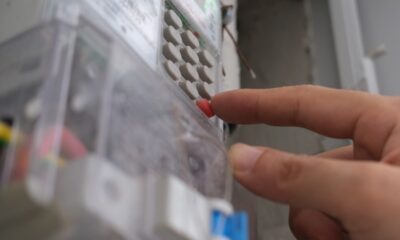News
Eskom warns South Africans: Meter tampering is not just theft, it’s a deadly gamble

South Africans are no strangers to power struggles, literally and figuratively. Load shedding has shaped everything from dinner plans to small-business survival. But now, Eskom is warning of another battle it cannot afford to lose: meter tampering.
The utility has raised the alarm over a surge in cases where electricity meters are illegally bypassed or altered to cut down costs. While some may see it as a desperate way to cope with rising tariffs, Eskom says the practice is both a crime and a life-threatening risk.
The new frontline of electricity theft
According to Eskom, meter tampering isn’t just about dodging bills. It robs the utility of much-needed revenue, places enormous strain on already fragile infrastructure, and exposes households to dangers like electrocution and fires.
“When a meter is illegally altered, faults in a home or business may go undetected. The system won’t trip as it should, and that can have fatal consequences,” the utility warned.
The City of Ekurhuleni has joined Eskom in condemning the rise of illegal connections, ghost vending, and bypassed meters, warning that this not only disrupts reliable supply but also erodes municipal finances.
To hit offenders where it hurts, the metro has introduced hefty penalties, starting at a minimum of R5,566.07 for tampering-related costs, excluding criminal charges. Eskom itself has warned fines could climb to R12,000, with repeat offenders risking prosecution.
Why this matters now
This crackdown comes at a time when Eskom is bleeding money from infrastructure crimes. From April 2024 to February 2025, the utility lost R221 million to vandalism and theftslightly lower than the R271 million reported the previous year, but still devastating for a company already battling debt and maintenance backlogs.
“These crimes don’t just cost Eskom; they cost ordinary South Africans,” said Monde Bala, Eskom’s group executive for distribution. “When equipment like transformers is vandalised, whole communities can sit without power for weeks while we source replacements.”
Communities caught in the middle
In townships and informal settlements, the issue is more complicated. Social media conversations show a growing frustration with high electricity prices and unreliable supply. Some argue that meter tampering is born of desperation, not malice.
One Johannesburg resident tweeted: “People can’t afford food, let alone electricity. Eskom should fix prices before blaming poor communities.”
But others point out that the real losers are the same communities, who face outages, higher costs, and safety risks because of tampering. “It’s like shooting yourself in the foot,” another user posted.
A cultural memory of electricity theft
Electricity theft is hardly new in South Africa. For decades, “izinyoka” (a slang term meaning snakes) has been used to describe illegal connections in townships. What’s different now is the scale and sophistication. Tampering has moved beyond makeshift wires to syndicates selling illegal prepaid vouchers, targeting desperate households with false promises of cheap power.
Eskom says it is monitoring consumption patterns to track down offenders. “If a meter shows usage but the customer isn’t buying power or is buying far less than normalit’s a clear red flag,” the utility explained.
Technicians are then dispatched to audit meters, and if tampering is confirmed, Eskom can remove infrastructure altogether while laying criminal charges.
A shared responsibility
Eskom insists it cannot solve this crisis alone. Bala has urged communities to take ownership of safeguarding infrastructure.
“Electricity isn’t just about keeping the lights on,” he said. “It’s about preserving food, enabling children to study after dark, and keeping businesses running. Protecting it is everyone’s responsibility.”
But until trust between the utility and ordinary South Africans improves, the temptation to cut corners will remain. The warning is clear: tampering with meters might save money in the short term, but in the long run, it risks lives, livelihoods, and the stability of the entire grid.
{Source: BusinessTech}
Follow Joburg ETC on Facebook, Twitter , TikTok and Instagram
For more News in Johannesburg, visit joburgetc.com



























